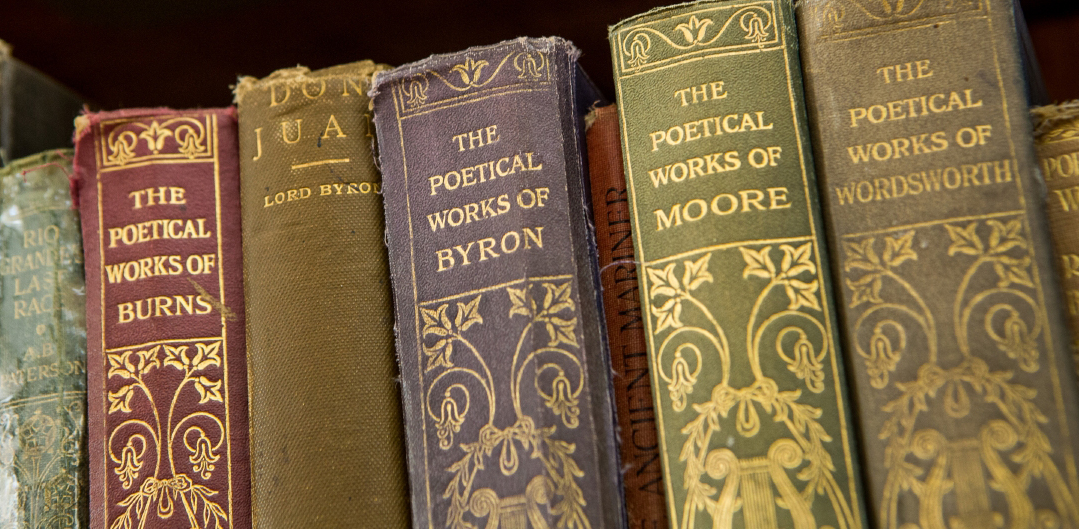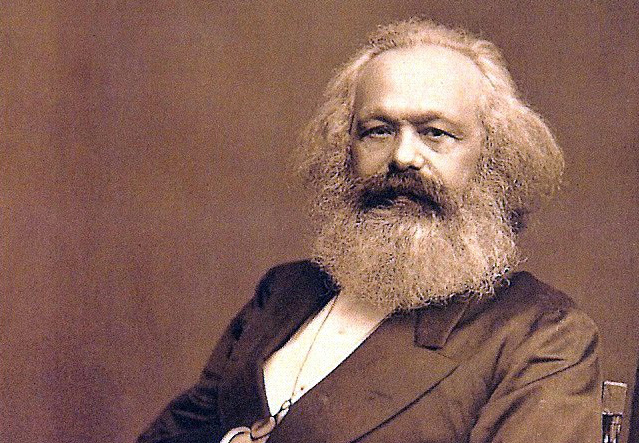10 great books to read before you die

The University of Melbourne’s 10 Great Books introduces readers to classics they’ve always wanted to read, know they should have, but never got around to
Published 24 September 2015
It’s a truism that constant readers read constantly. But, even so, they probably haven’t got close to reading everything they think they should.
And, like all readers, they’re attracted to authors or titles they know they like or are familiar with.
So when a group of distinguished scholars are asked to name their top 10 books, everyone is encouraged to go beyond their reading comfort zone.
“The 10 Great Books series gives readers the impetus to read classics they’ve always thought they should, but haven’t yet had the opportunity to enjoy,” says Dean of the Faculty of Arts, Professor Mark Considine.
This year the University of Melbourne hosted its second 10 Great Books series, chosen by leading academics and intellectuals who have a close relationship with the University of Melbourne.
10 great books in 2015
1. Capital Karl Marx Recommended by Professor Peter McPhee, historian and international authority on the French Revolution. Says Professor McPhee: Volume 1 of Das Kapital was published in 1867 during a peak of unrest in western Europe. It’s a great and brilliant book by one of the most influential thinkers of all time but reading it gives us particular challenges.

2. Dubliners James Joyce Recommended by Professor Gillian Russell, Gerry Higgins Chair in Irish Studies at the University of Melbourne, who publishes widely on Irish and British literature and culture of the eighteenth and nineteenth centuries with a focus on theatre, war, sociability, and gender. Says Professor Russell: Published just over a hundred years ago in 1914, Dubliners is the astonishing work of a passionate young man. One of the reasons it has endured is that it’s not only Irish people who see themselves in the mirror Joyce presents us.
3. Ulysses Alfred Lord Tennyson Recommended by Professor Glyn Davis, political scientist and Vice-Chancellor of the University of Melbourne. Says Professor Davis: Ulysses, by future Poet Laureate of Great Britain, Alfred Lord Tennyson, is a classic literary text penned in 1833 and published in 1842. It was in the later years, after 1850, that some of his most famous work was composed, including the moving narrative poems Enoch Arden and the anthem to Victorian patriotism The Charge of the Light Brigade. Yet for many contemporary readers it is the poetry composed earlier in Tennyson’s life which remains most interesting, even compelling. Certainly Ulysses is an outstanding piece of literary art.
4. To the Lighthouse Virginia Woolf Recommended by Professor Stephanie Trigg, Chaucerian expert, Professor of English Literature at the University of Melbourne and Chief Investigator with the Australian Research Centre of Excellence for the History of Emotions. Says Professor Trigg: To the Lighthouse is a wonderful meditation on fiction, creativity, and sexuality. Not a novel to be read for its plot, which is minimal, but as an experiment in the stream of consciousness method. In many ways it’s a deceptive text – elegant, lyrical, and philosophical – but with social and gender politics that are unblinking, and often devastating.
5. The Marriage of Heaven and Hell William Blake Recommended by Professor Peter Otto, DORA research professor at the University of Melbourne. Says Professor Otto: One of the world’s greatest and most provocative books, The Marriage of Heaven and Hell is the most important of Blake’s early works in illuminated printing, and arguably the first truly romantic work in English literature. It conveys an extraordinary sense of excitement and rebellious independence which satirises conventional moralities, demythologises religious dogma, and announces the beginning of an era of sexual freedom.
6. The Biggest Estate on Earth: How Aborigines Made Australia Bill Gammage Recommended by Professor Marcia Langton, celebrated public intellectual and Foundation Chair of Australian Indigenous Studies at the University of Melbourne. Says Professor Langton: Bill Gammage is one of our best historians, he’s my personal favourite this decade and I think this book should be read as part of the school curricula and by most Australians who read. The wonderful achievement of Bill Gammage’s book is his search of the historical records for an understanding of how the Indigenous people managed what he calls the Australian Estate in 1788 at the point of contact.
7. Middlemarch George Eliot Recommended by Professor Deirdre Coleman, expert on eighteenth and nineteenth century literature. Says Professor Coleman: Middlemarch is often considered the greatest Victorian novel but has not always been consistently admired and revered. For the first half of the 20th century...it was synonymous with a version of the Victorian era – prudish, respectable, suffocatingly conservative. Virginia Woolf nevertheless regarded Middlemarch as “one of the few English novels written for grown-up people”.
8. King Lear William Shakespeare Recommended by Dr David McInnis, Gerry Higgins Lecturer in Shakespeare Studies in the English and Theatre Studies program at the University of Melbourne, Vice President and bulletin editor for the Australian and New Zealand Shakespeare Association, and founder and co-editor of the Lost Plays Database. Says Dr McInnis: William Shakespeare’s deeply haunting tragedy, King Lear, written around 1606, remains one of the darkest and most disturbing works of western drama.
9. Coming up for Air George Orwell Recommended by Lindsay Tanner, former parliamentarian and federal Minister for Finance and Deregulation in the Australian government from 2007–2013. Says the Hon Lindsay Tanner: George Orwell is most known for his novels 1984 and Animal Farm but he actually wrote a number of novels, the last of which, Coming Up For Air, is probably the best. Through the eyes of his protagonist, George Bowling, Orwell explores a number of key themes, the most prominent of which is the falseness of nostalgia, but also the acute variations of class distinction in Britain, the pre-1914 era with its gloomy spectre of war, and the ugliness of modernity in the industrial suburban age he was so repelled by.
10. The Man Who Loved Children Christina Stead Recommended by Louise Adler, Chief Executive of Melbourne University Publishing, President of the Australian Publishers Association and Chair of the Australian Prime Minister’s Literary Awards for Fiction and Poetry. Says Ms Adler: Tolstoy’s apercu that opens Anna Karenina – “all happy families are alike, each unhappy family is unhappy in its own way” is a cliché today, but it was a radical proposition when the novel was first published in 1875. More than 60 years later the idea that the family wasn’t necessarily a safe loving haven from a turbulent world would be equally disturbing when Christina Stead published The Man Who Loved Children.
Banner image: Creswick campus library book shelf, University of Melbourne
